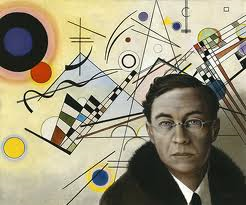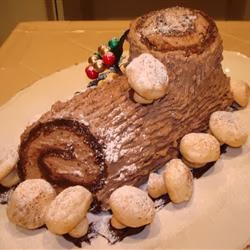Computer Classes every Sat. mornings 10-12.
"Open House" Whatever you need. Drop in anytime during those two
hours.
Genealogy tip for today: Why Do You Do
Genealogy #6: Connections: Reach Out and Touch
Do you remember the song that
Diana Ross sang by that name?
Reach out and touch
Somebody's hand
Make this world a better place
If you can
Reach out and touch
Somebody's hand
Make this world a better place
If you can.
Somebody's hand
Make this world a better place
If you can
Reach out and touch
Somebody's hand
Make this world a better place
If you can.
Another reason to get involved with genealogy is to find
the connection to someone famous, or to preserve the legacy of a famous
relative. You want to preserve that connection you have for your children and
theirs. A lot of people have heard that they were related to or descendant of
Davy Crockett, or the proverbial Indian Princess, or George Washington as we
mentioned in the beginning of the series. Maybe it was a famous movie star, or a
world famous athlete.
Or, was your grandmother a sister to a famous
author? (My grandmother claimed kinship to a Katrina Trask, poetess. I’m still
working on that one. But Grandma’s maiden name was Trask and there are many
implications that it was so, but as I said – I’m still working on that one. J I haven’t
been able to prove it yet, only conjectures.)
Maybe you don’t have a famous relative, but it is
important to preserve the connections you do have with your relatives. You don’t
want to lose track of the family you have. My side of the family came from New
York State. Today, cousins are scattered from PA, to FL, ID, AR and the
Beltway. Keeping track can only be done if someone takes the time to get
involved in reaching out to living relatives and researching documents of those
who have already passed on, showing how - and to whom you are connected. Why?
Read on.
There have been a lot of civilizations that have been
lost to the ages because there was no record of them, except maybe cave
drawings, or those who could testify to being among those responsible for the
wipe out. Anthropologists spend a lot of their time, money, energy and
knowledge trying to decide or determine what a given culture was like. They
have to fit together what pieces they have and come up with the best close
answer. Sometimes, an educated guess is the best they can do in the absence of
records or documentations.
Researching your family history also helps to preserve
the microcosm of your family’s culture, traditions and ethnicity. The whole is
only made of its parts and the parts that aren’t made or preserved leave a hole
in the story. Recording your own family’s background is the one thing you can
do to preserve your portion of the whole story.
In this world of globalization it is real easy to lose our
identity. But according to Thomas Freidman’s book “The Lexus and the Olive
Tree” the more we become globalized, the more people tend to pull back to keep
their ethnic identity. We are losing who we are, which lends the more
importance of preserving family stories, and community stories and more to
prevent that from happening.
To keep the bigger picture, we need to preserve each
element in it.
“History – it’s who
we are; Genealogy – it’s who I am” sg
If any of these posts are helpful drop us a line in
the comments section below. We just want to know if the information we provide
to you is helpful in anyway.
 |
| Charlamagne |
|
 |
| Wassily Kandinsky |
1584
|
John Cotton, English-born Puritan clergyman (The Way of
the Church of Christ in New England).
|
|
1795
|
Thomas Carlyle, Scottish historian and essayist (The
French Revolution, Sartor Resartus).
|
|
1835
|
Samuel Butler, English writer and painter (Erewhon,
The Way of All Flesh).
|
|
1861
|
Lillian Russell, singer and actress.
|
|
1865
|
Edith Cavell, English nurse who tended to friend and foe
alike during World War I.
|
|
1866
|
Wassily Kandinsky, Russian-born painter.
|
|
1875
|
Rainer Maria Rilke, German poet.
|
|
1892
|
Francisco Franco, Spanish general and dictator who came to
power as a result of the Spanish Civil War.
|
|
1924
|
Frank Press, geophysicist.
|
|
1937
|
Max Baer Jr., actor, screenwriter, director, producer;
best know for his role as Jethro on The Beverly Hillbillies TV series
|
|
1940
|
Gary Gilmore, American murderer who demanded his death sentence
be carried out; he was the first prisoner executed in the US following the
Supreme Court's ruling on the death penalty in Gregg v. Georgia.
|
|
1944
|
Chris Hillman, singer, songwrier, musician; performed with
the bands The Byrds, The Hillmen, The Flying Burrito Brothers, and Manassas.
|
|
1945
|
A. Scott Berg, Pulitzer Prize–winning biographer (Lindberg,
1998).
|
|
1949
|
Jeff Bridges, actor, producer; won Academy Award for Best
Actor as Otis "Bad" Blake in Crazy Heart (2009).
|
ineluctable
PRONUNCIATION:
(in-i-LUHK-tuh-buhl)
MEANING:
adjective: Impossible to
avoid: inescapable.
ETYMOLOGY:
From
Latin in- (not) + eluctari (to struggle out of), from ex- (out) + luctari (to
struggle). Earliest documented use: 1623.
USAGE:
"These
qualms were squashed out of existence by the ineluctable pressure of
necessity."
Kate Christensen; In the Drink; Doubleday; 1999.
Kate Christensen; In the Drink; Doubleday; 1999.
Truth
does not change according to our ability to stomach it. -Flannery O'Connor,
writer (1925-1964)
Today’s
Recipe
Buche de
Noel
Ingredients:
2 cups heavy cream
1/2 cup confectioners' sugar
1/2 cup unsweetened cocoa powder
1 teaspoon vanilla extract
6 egg yolks
1/2 cup white sugar
|
1/3 cup unsweetened cocoa powder
1 1/2 teaspoons vanilla extract
1/8 teaspoon salt
6 egg whites
1/4 cup white sugar
confectioners' sugar for dusting
|
Directions:
| 1. | Preheat oven to 375 degrees F (190 degrees C). Line a 10x15 inch jellyroll pan with parchment paper. In a large bowl, whip cream, 1/2 cup confectioners' sugar, 1/2 cup cocoa, and 1 teaspoon vanilla until thick and stiff. Refrigerate. |
| 2. | In a large bowl, use an electric mixer to beat egg yolks with 1/2 cup sugar until thick and pale. Blend in 1/3 cup cocoa, 1 1/2 teaspoons vanilla, and salt. In large glass bowl, using clean beaters, whip egg whites to soft peaks. Gradually add 1/4 cup sugar, and beat until whites form stiff peaks. Immediately fold the yolk mixture into the whites. Spread the batter evenly into the prepared pan. |
| 3. | Bake for 12 to 15 minutes in the preheated oven, or until the cake springs back when lightly touched. Dust a clean dishtowel with confectioners' sugar. Run a knife around the edge of the pan, and turn the warm cake out onto the towel. Remove and discard parchment paper. Starting at the short edge of the cake, roll the cake up with the towel. Cool for 30 minutes. |
| 4. | Unroll the cake, and spread the filling to within 1 inch of the edge. Roll the cake up with the filling inside. Place seam side down onto a serving plate, and refrigerate until serving. Dust with confectioners' sugar before serving. |
ENJOY!
Now You Know!


Good note to share to students. Not only does digitization help in absorbing the labyrinthine process of genealogy, it also encourage them to have a little bit more agency, in an increasingly informational era that absorbs everything in its path. People should be armed in both mind and heart to engage the current digital zeitgeist and make the most out of it.
ReplyDeleteWilliamsDataManagement.com
And digitization is here to stay. I don't see it ever going back.
DeleteThanks for your comment.